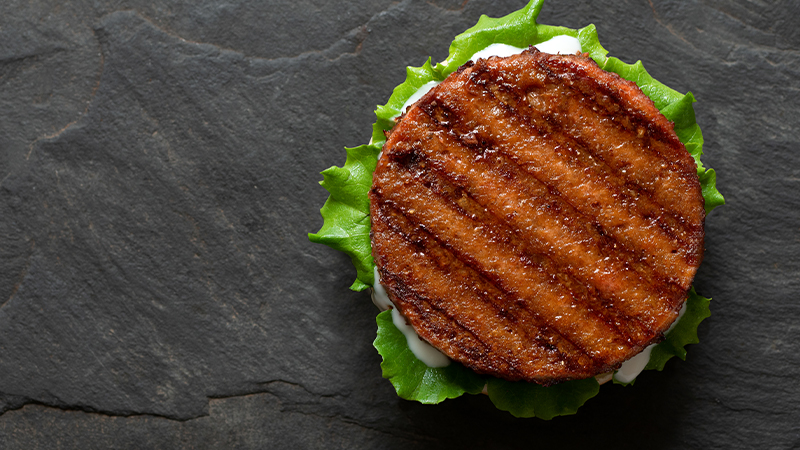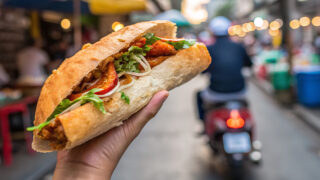Expat Living contributor CATHIE HEARNS shares her views on the meatless meat phenomenon, vegetarian burgers in particular.
There are many reasons why people choose to turn their backs on eating animals – cruelty, reducing carbon emissions and better health all come to mind.
The numbers who are actually doing this, though, remain quite low in places: for instance, vegans and vegetarians make up just three percent of the US population. In order to get a better foothold in the carnivore market, the meatless meat industry has turned to products that not only look and taste like the real deal but also give a reason why one should make the switch: it’s healthier for the environment.

To this end, some of the fake meat burger patties, with their realistic texture and “bloodiness”, appear to have got it right – certainly on the aesthetics. As the verdict on taste may be somewhat more subjective, let’s take a quick look at what they’re made of and how much better for your health and the planet they might be.
With Americans consuming an average of 2.4 burgers a day (around 50 billion a year) we will use the meatless burger patty as the basis for comparison.
# Ingredients in vegetarian burgers
A leader in this new industry, the Impossible Burger consists of an ingredient called soy leghemoglobin mixed with coconut oil, wheat, potato protein and other ingredients. It sounds relatively run of the mill until you discover that soy leghemoglobin is produced by extracting the DNA from the roots of soy plants and inserting it into genetically engineered yeast, which is then fermented to create a product that has never been consumed by humans. Some might find it disconcerting, too, that the USA’s Food and Drug Administration proclaimed it safe for consumption after a short 28-day study rather than the mandatory 90-day study mentioned in its own guidelines.
On the other hand the Beyond Burger, another leading product, is made from pea protein and 21 other ingredients; but it is soy- and gluten-free and doesn’t include GMOs.
# Processing of fake meat
Both companies’ patties classify as “ultra-processed”. According to a 2019 UN report (“Ultra-processed foods, diet quality and health using the NOVA classification system” ), there is a clear link between an ultra-processed diet and non-communicable diseases such as obesity, cardiovascular disease, cancer, depression, gastrointestinal disorders and premature mortality.
According to NOVA, ultra-processed foods can be easily recognised by their long list of ingredients and are “Industrial formulations made entirely or mostly from substances extracted from foods, derived from food constituents, or synthesised in laboratories from food substrates or other organic sources.” Impossible Foods also holds 14 patents, with more pending, which again points to the unnatural quality of its products.
# Environment impact of meatless meat
The marketing strategy of the two companies mentioned above relies heavily on the notion that consuming their products is better for the environment. And they do both perform better than a beef patty from a concentrated animal feeding operation; one study showed that the Impossible Burger produced 89 percent fewer GHG emissions than conventional beef.
On the other hand, there seems to be no comparison against a patty made from meat that’s raised via what is known as regenerative agriculture (a holistic approach aimed at improving a farm’s ecosystem). For instance, 1kg of regeneratively farmed beef from a farm in the US was shown to remove 3.5kg of CO2 from the atmosphere. The same amount of Impossible Burger is said to add 3.5 kg instead.
Whichever way the world tries to spin it, we’re still skirting around the main issue. For better health for both ourselves and the planet, we need to get rid of junk food, grow and eat good organic plant based food, and eat a lot less meat – fake or otherwise.
Like this? Read more at our Wine & Dine section
This article first appeared in the September 2021 edition of Expat Living. You can purchase the latest issue or subscribe, so you never miss a copy!
Don't miss out on the latest events, news and
competitions by signing up to our newsletter!
By signing up, you'll receive our weekly newsletter and offers which you can update or unsubscribe to anytime.



